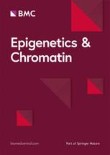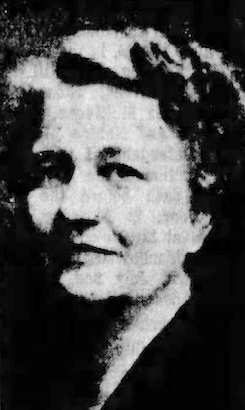Related Research Articles
Onomastics is the study of the etymology, history, and use of proper names. An alethonym or an orthonym is the proper name of the object in question, the object of onomastic study.
Adele Eva Goldberg is an American linguist known for her development of construction grammar and the constructionist approach in the tradition of cognitive linguistics.
Allen Walker Read was an American etymologist and lexicographer. Born in Minnesota, he spent much of his career as a professor at Columbia University in New York. Read's work Classic American Graffiti is well regarded in the study of latrinalia and obscenity. His etymological career included his discovery of the origin of the word "OK", a longtime puzzle, and his scholarly study of the history and use of the common English vulgarity "fuck."
The Council for British Research in the Levant (CBRL) is a non-profit organisation that promotes humanities and social science research in the Levant. It consists of two research institutes, the Kenyon Institute in Jerusalem and the British Institute in Amman (BIA) in Amman, Jordan.

The Directory of Open Access Journals (DOAJ) is a website that hosts a community-curated list of open access journals, maintained by Infrastructure Services for Open Access (IS4OA). It was launched in 2003 with 300 open access journals.
Gender-neutral language or gender-inclusive language is language that avoids reference towards a particular sex or gender. In English, this includes use of nouns that are not gender-specific to refer to roles or professions, formation of phrases in a coequal manner, and discontinuing the collective use of male or female terms. For example, the words policeman and stewardess are gender-specific job titles; the corresponding gender-neutral terms are police officer and flight attendant. Other gender-specific terms, such as actor and actress, may be replaced by the originally male term; for example, actor used regardless of gender. Some terms, such as chairman, that contain the component -man but have traditionally been used to refer to persons regardless of sex are now seen by some as gender-specific. An example of forming phrases in a coequal manner would be using husband and wife instead of man and wife. Examples of discontinuing the collective use of terms in English when referring to those with unknown or indeterminate gender as singular they, and using humans, people, or humankind, instead of man or mankind.
Information for Social Change (ISC) is an international, volunteer-based association, whose primary mission is to debate and comment on issues of social justice, censorship, freedom and ethics in the library and information field. Information for Social Change can be described as an activist organization of library and information professionals. An important aspect of the mission is for members to debate and challenge dominant paradigms or perspectives in the library and information sector. The scope of Information for Social Change is not, however, limited to the traditional library sector, but encompasses a broad spectrum of issues impacting access to information, information literacy and the wider role of information users in society. Information for Social Change supports conferences and collaborates with a range of literacy activists groups. ISC self-publishes their scholarly journal, ISC journal which is published online. Their webpage is (https://informationforsocialchange.wordpress.com and the international standard serial number for the ISC journal is: 1364-694X | 1756-901X. Information for Social Change is part of the Directory of Open Access Journals.
The International Council of Onomastic Sciences (ICOS) is an international academic organization of scholars with a special interest in onomastics, the scientific study of names. The official languages of ICOS are English, French, and German.

Epigenetics & Chromatin is a peer-reviewed open access scientific journal published by BioMed Central that covers the biology of epigenetics and chromatin.
Judith Tonhauser is a Professor of English Linguistics at the University of Stuttgart.
George Northcroft was a British orthodontist who is known for his contributions in the formation of the British Orthodontic Society. The society was initially formed in 1907 as British Society for the Study of Orthodontics (BSSO) and the name later changed to British Orthodontic Society. He also played an important role in formation of the Dental Act of 1921 which made dentistry a profession in Great Britain.
Donna M. Huryn is an American medicinal and organic chemist. She received her B.A. (chemistry) from Cornell University, and Ph.D. in organic chemistry from the University of Pennsylvania. She is on the faculty at the University of Pittsburgh’s school of pharmacy, holds an adjunct appointment in the department of chemistry at the University of Pennsylvania, is the principal investigator of the University of Pittsburgh Chemical Diversity Center, and was a visiting fellow in the summer of 2017 at the University of Bologna. She is a fellow of the American Chemical Society, recipient of the ACS Philadelphia Local Section Award, has held a number of elected positions within the American Chemical Society at both the local and national levels, and is 2015 Chair of the Division of Organic Chemistry. Huryn also formed, along with a number of other scientists, the Empowering Women in Organic Chemistry Conferences in 2019. The goal was to empower and bring the research and career of all marginalized individuals in chemistry-related fields to the forefront of the scientific community. Huryn noticed how there was not enough women pursuing and maintaining a career in organic chemistry, and thus founded this organization. The Empowering Women in Organic Chemistry Conferences allowed for women leaders to present their scientific findings and hear the stories of how eminent women in the field of organic chemistry overcame the challenges they faced being female. She is associate editor of ACS Medicinal Chemistry Letters. She in also an editor of the journal Organic Reactions and co-authored the textbook Medicinal Chemistry and the article "Medicinal Chemistry: Where Are All the Women?" which appeared in the ACS Medicinal Chemistry Letters Journal. Huryn’s research focuses on the design and synthesis of small molecules probes and drugs to treat cancer, neurodegenerative and infectious diseases.
Bissula was an Alemannic woman in the 4th century. She was captured by the Romans in 368 at the Battle of Solicinium, in the area of Württemberg, at a young age and became a slave of the Roman poet Ausonius who had participated in the campaign. Ausonius, who by then was a widower of about 60 years of age, fell in love with Bissula and released her from slavery. He wrote a poem on her, de Bissula, which he sent to his friend Paulus.
Laura Miller is an American anthropologist and the Ei'ichi Shibusawa-Seigo Arai Endowed Professor of Japanese Studies and Professor of History at the University of Missouri–St. Louis. She held various academic positions and jobs in both the United States and Japan before accepting this named chair in 2010.
Geoffrey "Geoff" William Coates is an American chemist and the Tisch University Professor in the department of chemistry and chemical biology at Cornell University.
Nick Rapone is an American football coach for the Tampa Bay Buccaneers. He previously coached at the collegiate level at Temple, Pitt and Delaware.
Amy Rose Deal is associate professor of linguistics at the University of California, Berkeley. She works in the areas of syntax, semantics and morphology, on topics including agreement, indexical shift, ergativity, the person-case constraint, the mass/count distinction, and relative clauses. She has worked extensively on the grammar of the Sahaptin language Nez Perce. Deal is Editor-in-Chief of Natural Language Semantics, a major journal in the field.
Socio-onomastics is the study of names through a sociolinguistic lens, and is part of the broader topic of onomastics. Socio-onomastics 'examines the use and variety of names through methods that demonstrate the social, cultural, and situational conditions in name usage'. As a discipline, it aims to explore 'the social origin and use of different variants of proper names within various situations and contexts', including both place names and personal names.
Gates Open Research is a peer-reviewed open access scientific journal exclusively for research funded by the Bill & Melinda Gates Foundation. It was established in 2017. The journal is listed in the Directory of Open Access Journals.

Margaret Mae Bryant was an American linguist and folklorist. She was an expert on grammar, and was twice president of the American Name Society.
References
- 1 2 "About the ANS - American Name Society". 20 February 2015.
- ↑ "'Ferguson' Is 2014's Name of the Year". Time. 9 January 2015. Retrieved 2017-02-20.
- ↑ Abel, Ernest Lawrence (2013-09-01). "A Note on the Names in Names". Names. 61 (3): 168–173. doi: 10.1179/0027773813Z.00000000056 . ISSN 0027-7738.
- ↑ "About the Journal | Names". ans-names.pitt.edu. Retrieved 2024-03-24.
- 1 2 3 4 5 Leonard R. N. Ashley (2002) The American Name Society: The First Fifty Years, Names, 50:1, 63-72, DOI: 10.1179/nam.2002.50.1.63
- ↑ Unknown (1952-06-01). "American Name Society". Indiana Magazine of History. ISSN 1942-9711.
- ↑ "About the Journal | Names". ans-names.pitt.edu. Retrieved 2024-03-24.
- ↑ "Who Was Who in Name Study". www.wtsn.binghamton.edu. Archived from the original on 2012-04-15. Retrieved 2018-04-08.
- ↑ Stewart, George R. (1953). "The Field of the American Name Society". Names. 1 (2): 73–78. doi:10.1179/nam.1953.1.2.73.
- ↑ "Directory of Open Access Journals". doaj.org. Retrieved 2023-01-29.
- ↑ "Editors' Profiles | Names". ans-names.pitt.edu. Retrieved 2023-01-29.
- ↑ "ANS Emerging Scholar Award | American Name Society". 2022-01-08. Retrieved 2022-02-09.
- ↑ Nick, I. M. (2022-08-22). "Invitation to Apply for the American Name Society's Emerging Scholar Award". Names. 70 (3): 64–65. doi: 10.5195/names.2022.2442 . ISSN 1756-2279.
- ↑ Nick, I. M. (2021-11-15). "2020 Award for Best Article in NAMES: A Journal of Onomastics". Names. 69 (4): 55–56. doi: 10.5195/names.2021.2347 . ISSN 1756-2279.
- ↑ Nuessel, Frank (12 May 2017). "Editorial". Names. 65 (2): 63–64. doi: 10.1080/00277738.2017.1316003 .
- ↑ "Words with friends; Appalachian professor leads American Name Society » News Archive » Appalachian State University News". Archived from the original on 2017-02-21. Retrieved 2017-02-20.
- 1 2 "Name of the Year | American Name Society". American Name Society. 2017-02-03. Retrieved 2017-02-20.
- ↑ Nick, I. M. (2024-03-12). "Name of the Year Report 2023". Names. 72 (1): 57–68. doi:10.5195/names.2023.2621. ISSN 1756-2279.
- ↑ Evans, Cleveland (29 January 2023). "Cleveland Evans: What is the 2022 Name of the Year?". Omaha World-Herald. Retrieved 2023-01-29.
- ↑ ""Great Resignation" Chosen 2021 Name of the Year | American Name Society". 2022-01-30. Retrieved 2022-02-08.
- ↑ Evans, Cleveland (16 January 2018). "Evans: Rohingya is a name worth remembering". Omaha.com. Retrieved 8 April 2018.
- ↑ "Why 'Dumpster Fire' Was 2016 Word of the Year". Live Science. Retrieved 2017-02-20.
- ↑ "'Caitlyn Jenner' Is the 2015 Name of the Year". Time. 8 January 2016. Retrieved 2017-02-20.
- ↑ "'Ferguson' Is 2014's Name of the Year". Time. 9 January 2015. Retrieved 2017-02-20.
- ↑ "American Name Society: Names of the Year". sites.google.com. Retrieved 2017-05-20.
- ↑ "Directory of Allied Organizations". apps.mla.org. Retrieved 2018-04-08.
- ↑ "Meeting Handbook" (PDF). Linguistic Society of America. Retrieved 8 April 2018.